Are you tired of spending hundreds of dollars on expensive acne treatments only to see them fail? Are you ready to try something new? Then you should read this article!
Are you looking for ways to treat acne naturally? If yes, then you should try Ayurvedic remedies for treatment. This ancient system has helped millions of people around the globe improve their health and beauty.
Ayurveda is the oldest medical science known to man. The word literally means “the knowledge of life”. It was developed thousands of years ago, and its principles continue to be practiced today.
This article will tell you why Ayurveda is effective in treating skin problems such as acne. It also provides information on how to prepare remedies from natural sources.
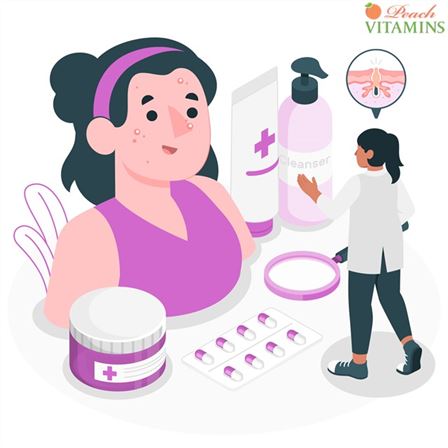
What Causes Pimples? Common Triggers and Risk Factors.
Acne is caused by bacteria on our skin, as well as genetics, hormones, diet, stress, and lifestyle factors.
Common triggers include overuse of harsh cleansers, oily foods, and certain medications. Other risk factors include hormonal fluctuations during puberty, pregnancy, and menopause.
When we’re stressed out, our body produces excess amounts of cortisol, which increases oil production and leads to clogged pores. This is called the “stress response.”
Other risk factors include hormonal fluctuations, pregnancy, and menopausal symptoms.
If you suffer from acne, you may be tempted to use harsh chemicals to treat it. But these harsh chemicals can actually cause further damage to your skin. Instead, try natural remedies that won’t irritate your skin.
Here are some tips for treating acne naturally:
• Use gentle cleansing products. Avoid harsh chemical cleaners that strip away your skin’s protective oils. Instead, opt for mild soap and water or a gentle facial wash.
• Eat healthy fats. Omega-3 fatty acids found in fish oil help reduce inflammation and fight against bacterial growth. They also moisturize your skin and keep it soft.
• Drink plenty of water. Drinking enough water helps flush toxins from your system and keeps your skin hydrated.
• Get regular exercise. Exercise reduces stress and improves circulation, which helps eliminate toxins and flushes out impurities.
• Reduce stress. Stress makes your body produce extra cortisol, which can lead to clogged pores. Try meditation, yoga, or other relaxation techniques to calm yourself down.
What Are The Different Types & Treatments of Pimples?
Pimples are unsightly blemishes that appear on the face, neck, chest, back, arms, legs, hands, feet, scalp, and buttocks. They’re caused by clogged pores, bacteria, oil buildup, and dead skin cells.
There are many types of pimples, including blackheads, whiteheads, cysts, comedones, papules, pustules, nodules, and boils.
Blackheads are minor bumps filled with sebum (skin oil) and dirt. Whiteheads are large bumps filled with pus. Cysts are inflamed lesions that contain fluid. Comedones are small bumps filled with keratin (dead skin). Papules are raised lumps. Pustules are painful sores. Nodules are hard lumps. Boils are deep red, tender lumps.
In brief, there are many types of acne formations. Some are harmless, some are serious, and others are just messy.
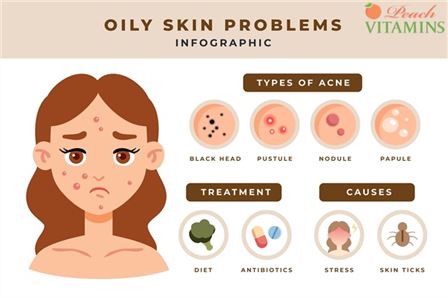
What Hormonal Changes Cause Inflammatory Acne?
Hormonal changes cause this skin disorder, but not all hormonal changes are created equal. Some hormones cause adult acne, some don’t.
Some hormones cause acne because they stimulate oil production in the skin. This causes clogged pores and blackheads. Other hormones cause acne because they suppress oil production in the skin, causing dryness and flaking.
Both types of hormonal changes cause acne, but only certain hormonal changes cause acne at any given time. So, when you’re trying to treat acne, you need to identify the type of hormonal change that’s causing your acne.
To find out what type of hormonal change is causing your acne, you must first understand what causes hormonal changes. The most common hormone in our body is cortisol. Cortisol is released during times of stress, and it helps us cope with stressful situations.
However, cortisol also increases oil production in the skin and causes acne. So, if you experience acne after a stressful event, then you may experience a cortisol-induced acne breakout.
Other hormones that cause acne include testosterone levels and progesterone. Testosterone is produced primarily by men, and it stimulates oil production in the skin (and hair). Progesterone is produced mainly by women, and it suppresses oil production in the skin; this makes progesterone-induced acne worse than testosterone-induced acne.
If you want to know whether you’re experiencing a testosterone- or progesterone-induced breakout, just ask yourself these questions: Do you have oily skin? Are you overweight? Is your acne worse in the morning?
If you answered yes to any of those questions, then you’re experiencing a testosterone/progesterone-induced breakout.
Abstract Acne is a common skin problem that affects almost 85% of teenagers, mostly occurs on face and some time on chest and upper back too.
Source: ncbi.nlm.nih.gov
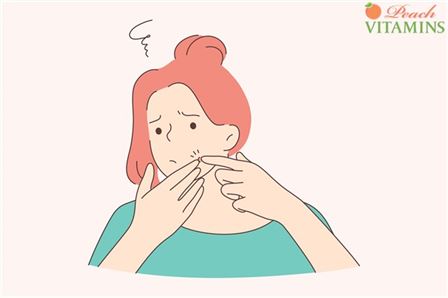
Skin Health – What Skin Care Is Not Doing – It’s Time For A Change.
There are many skin treatments out there, but most of them only offer temporary relief. They’re not designed to treat acne inflammations permanently.
Acne is a chronic condition that requires long-term treatment. The problem is that most skin care products aren’t designed to treat acne. They’re designed to temporarily hide the appearance of pimples and blemishes.
That’s why Ayurveda offers a unique solution to treating acne. It’s a holistic approach that treats the root cause of acne, rather than just masking its symptoms.
When we talk about the root cause of acne, we mean Ayurveda understands that an acne remedy isn’t just a physical issue. It’s a mental, emotional, and spiritual issue too. So when we say that Ayurveda treats the root cause of your acne, we mean it addresses the whole person.
Ayurveda recognizes that acne is a symptom of deeper issues within our body and mind. And because of this, Ayurveda offers solutions that address these deeper causes, rather than just focusing on the surface.
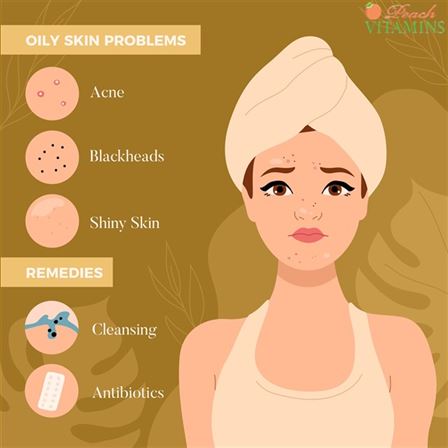
Skin Irritation – How Does Skin Inflammation Affect Me Personally?
Skin inflammation affects everyone differently. Some people experience acne only when they’re stressed out; others have it every day.
Some people suffer from skin inflammation because of hormones, while others have it because of genetics. Whatever the cause, the result is the same: inflamed, red, swollen, painful skin.
If you have acne, you may wonder whether Ayurveda can help. After all, Ayurveda is an ancient system of medicine based on the belief that everything in nature has its own unique healing properties.
Ayurveda believes that the body comprises three layers: physical, emotional, and spiritual. The physical layer includes our organs, bones, muscles, and blood vessels. The emotional layer includes our emotions, thoughts, beliefs, and habits. And the spiritual layer includes our soul, mind, and intuition.
When we feel stress, our bodies release chemicals called cortisol and adrenaline, which trigger inflammation. This causes our skin to become irritated and inflamed.
Ayurvedic treatments include herbs, oils, and diet. They aim to balance these three layers of the body and restore harmony within them.
Ayurvedics believe that acne is caused by imbalances between the three layers of the body. In order to treat acne, Ayurvedic practitioners recommend balancing the physical, emotional, and mental aspects of the body.
Ayurvedics use herbal remedies to get rid of pimples and calm the nervous system and reduce anxiety. They also encourage patients to eat foods that nourish their bodies and minds, including whole grains, vegetables, fruits, nuts, seeds, beans, lentils, and fish.
Ayurvedics also recommend using oil massages and applying warm compresses to relieve tension and stimulate circulation. Finally, they suggest taking supplements to support overall health and wellness.
Ayurveda suggests that acne treatment should begin with lifestyle changes. These include eating healthy, getting enough sleep, exercising regularly, and reducing stress.
Once you’ve changed your lifestyle, Ayurveda recommends treating your skin with natural products. You can find many of these at local health food stores, grocery stores, and online retailers.
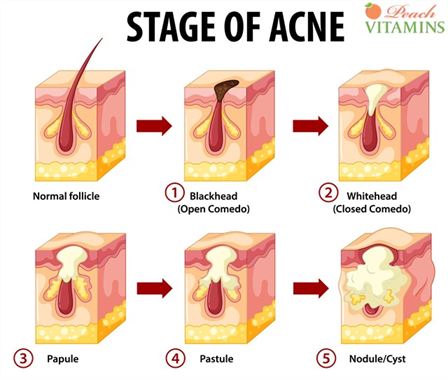
Inflamed Acne Lesions – Avoid These Common Mistakes That Make Acne Worse
Acne lesions are inflamed bumps on the skin. They’re usually red and painful. The most common type of acne lesion is called comedones.
Comedones are small, hard lumps that form when oil glands become blocked. They often appear on the face, neck, chest, back, shoulders, arms, legs, and buttocks.
They may be white, yellow, black, brown, pink, or purple. Some people call them pimples.
When you have acne lesions, treat them right away because they can lead to permanent scarring.
To treat acne lesions, apply topical medicines containing benzoyl peroxide or salicylic acid. These medications work by killing bacteria that cause acne.
If you use benzoyl peroxide, you may need to use it twice daily, depending on the severity of your acne.
If you have severe acne lesions, you may need to take oral antibiotics, such as tetracycline or erythromycin.
These medications kill the bacteria that cause acne. However, these medications may not work well for everyone.
Some people develop a sensitivity to these medications. Also, some people may experience side effects, including nausea, stomach pain, diarrhea, dizziness, headache, drowsiness, dry mouth, and constipation.
Ayurvedic Skin Cream for the Acne Prone
You might use natural remedies instead of prescription drugs if possible. Natural remedies include aloe vera gel, witch hazel, tea tree oil, apple cider vinegar, baking soda, and coconut oil.
Ayurvedic ingredients, like aloe vera gel contain antibacterial properties that help reduce inflammation. Witch hazel helps cleanse pores and remove excess oils from the skin. Tea tree oil kills bacteria that cause acne. Apple cider vinegar reduces swelling and clears up blemishes.
Baking soda removes dirt and dead cells from the skin. Coconut oil softens the skin and moisturizes it.
Tea tree oil gel is the most effective remedy for acne because it contains powerful antibacterial properties. Tea tree oil can be applied topically or ingested in capsule form. It is very important to use tea tree oil only on clean dry skin. Use a cotton ball dipped in tea tree oil to apply directly to affected areas. The tea tree oil will penetrate the pores and kill the bacteria causing your acne.
The efficacy and tolerability of tazarotene foam, 0.1%, in the treatment of acne vulgaris in 2 multicenter, randomized, vehicle-controlled, double-blind studies.
Source: pubmed.ncbi.nlm.nih.gov
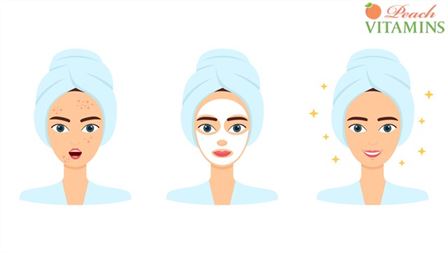
Blood Circulation – Ways to Help the Body Regulate Its Fluid Levels
Many people suffer from dark spots because their blood circulation isn’t working properly. This causes toxins to build up in the skin, which leads to inflammation and clogged pores.
To improve blood circulation, try these simple tips:
1) Drink plenty of water. Water helps flush out toxins and keep your body hydrated.
2) Eat foods rich in vitamin C. Vitamin C improves blood flow and reduces inflammation.
3) Exercise regularly. Exercise increases blood flow and oxygenation throughout the body.
4) Avoid caffeine and alcohol. These substances constrict blood vessels and reduce blood flow.
5) Use essential oils. Essential oils help stimulate blood flow and relax muscles.
6) Try aromatherapy. Aromatherapy uses scents to calm nerves and boost energy.
7) Take supplements. Supplements containing vitamins B, E, and C, magnesium, zinc, and selenium may help prevent acne.
8) Reduce stress. Stress decreases blood flow and makes it harder to heal wounds.
9) Get adequate sleep. Lack of sleep can cause hormonal imbalances that lead to breakouts.
Ayurvedic Home Remedies – Final Thoughts
In conclusion, Ayurvedic treatment of acne includes lifestyle changes and herbal remedies.
The best way to get rid of acne is to avoid triggers. You can do this by avoiding harsh soaps, chemicals, and cosmetics.
Also, make sure to wash your face at least three times a day with warm water and mild cleansers.
Scheduling a free consultation with Cosmic Mike to learn more about acne scars and skin conditions will give you peace of mind about Ayurvedic medicine.
